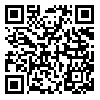Volume 6, Issue 1 (6-2019)
vacres 2019, 6(1): 13-24 |
Back to browse issues page
Irina Kiseleva * 
 , Ekaterina Stepanova
, Ekaterina Stepanova 
 , Elena Krutikova
, Elena Krutikova 
 , Svetlana Donina
, Svetlana Donina 
 , Andrey Rekstin
, Andrey Rekstin 
 , Ekaterina Bazhenova
, Ekaterina Bazhenova 
 , Maria Pisareva
, Maria Pisareva 
 , Anastasia Katelnikova
, Anastasia Katelnikova 
 , Kirill Kryshen
, Kirill Kryshen 
 , Arman Muzhikyan
, Arman Muzhikyan 
 , Elena Grigorieva
, Elena Grigorieva 
 , Larisa Rudenko
, Larisa Rudenko 


 , Ekaterina Stepanova
, Ekaterina Stepanova 
 , Elena Krutikova
, Elena Krutikova 
 , Svetlana Donina
, Svetlana Donina 
 , Andrey Rekstin
, Andrey Rekstin 
 , Ekaterina Bazhenova
, Ekaterina Bazhenova 
 , Maria Pisareva
, Maria Pisareva 
 , Anastasia Katelnikova
, Anastasia Katelnikova 
 , Kirill Kryshen
, Kirill Kryshen 
 , Arman Muzhikyan
, Arman Muzhikyan 
 , Elena Grigorieva
, Elena Grigorieva 
 , Larisa Rudenko
, Larisa Rudenko 

Institute of Experimental Medicine
Abstract: (4422 Views)
Introduction: The global co-circulation of two influenza B virus genetic lineages known as B/Yamagata and B/Victoria may lead to a mismatch between the circulating virus and the strain recommended for use in influenza vaccines. Little is known about the protective efficacy of unmatched influenza B strains, especially when it comes to live attenuated influenza vaccine. The main purpose of this study was to demonstrate the viability of using live attenuated influenza vaccine developed on B/USSR/60/69 backbone to protect from heterologous influenza B challenge infection.
Methods: To estimate the potential cross-protective activity of mono- and trivalent live attenuated vaccines based on B/Victoria or B/Yamagata genetic lineage virus against a heterological challenge. Ferrets were given one dose of vaccine and then challenged with influenza B virus and monitored for clinical signs associated with influenza infection. Samples of the ferrets’ airways were tested for the presence of challenge virus.
Results: Mono- and trivalent live attenuated influenza vaccines were shown to be safe and cross-protective against genetically different influenza B viruses based on virological and histological data and clinical signs. A lower titer of heterologous challenge virus in the airways of vaccinated ferrets compared to mock-vaccinated animals inoculated with challenge virus was detected. Interestingly, B/Victoria-based vaccines were more cross-protective compared with B/Yamagata-based vaccines.
Conclusion: In the case of mismatches of B component of the trivalent live attenuated influenza vaccine and lineage of the circulating influenza B viruses, one of the options could be using trivalent preparation containing a B/Victoria lineage component.
Methods: To estimate the potential cross-protective activity of mono- and trivalent live attenuated vaccines based on B/Victoria or B/Yamagata genetic lineage virus against a heterological challenge. Ferrets were given one dose of vaccine and then challenged with influenza B virus and monitored for clinical signs associated with influenza infection. Samples of the ferrets’ airways were tested for the presence of challenge virus.
Results: Mono- and trivalent live attenuated influenza vaccines were shown to be safe and cross-protective against genetically different influenza B viruses based on virological and histological data and clinical signs. A lower titer of heterologous challenge virus in the airways of vaccinated ferrets compared to mock-vaccinated animals inoculated with challenge virus was detected. Interestingly, B/Victoria-based vaccines were more cross-protective compared with B/Yamagata-based vaccines.
Conclusion: In the case of mismatches of B component of the trivalent live attenuated influenza vaccine and lineage of the circulating influenza B viruses, one of the options could be using trivalent preparation containing a B/Victoria lineage component.
Keywords: influenza, influenza B virus, live attenuated influenza vaccine, cross-protective activity
Type of Study: Research |
Subject:
Vaccine development, efficacy and safety evaluation
Received: 2020/01/3
Received: 2020/01/3
| Rights and permissions | |
 |
This work is licensed under a Creative Commons Attribution-NonCommercial 4.0 International License. |

